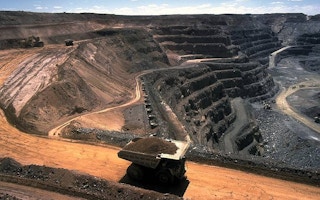In July, the Serbian government reinstated the permits for Rio Tinto’s lithium mining project, after canceling them in 2022 following public protests. The decision triggered demonstrations, with thousands of people taking to the streets of Belgrade over concerns that the mine would pose a threat to water sources and public health. After all, Rio Tinto had already demonstrated its willingness to circumvent the country’s environmental regulations.
Rio Tinto has a long history of alleged human-rights violations and water mismanagement and contamination at its mines around the world. But it is not just Rio Tinto: corruption and negligence are endemic in the mining industry. A US judge ordered Glencore to pay US$700 million in fines for its decade-long scheme to bribe officials in several countries. Mining giant BHP and its Brazilian partner Vale are tied up in legal battles over the collapse of the Fundão tailings dam – Brazil’s worst environmental disaster.
As the European Union plans to increase domestic mining of materials that are essential to the green transition, as well as to numerous defense technologies and digital products, policymakers and populations are seeking reassurance that such efforts will be sustainable. To that end, the International Council on Mining and Metals (ICMM) – an association that Rio Tinto helped establish and includes Glencore, Vale, and BHP – and other major industry players are working to create a global standard, called the Consolidated Mining Standard Initiative (CMSI), to certify minerals as responsibly produced. Given their track record, can these mining giants be trusted to set their own rules and hold themselves accountable?
Voluntary standards and certifications are hardly new. They exist across a range of industries, from agriculture to construction, and many such initiatives already exist in the mining sector. In fact, the four associations leading the CMSI – the ICMM, the Mining Association of Canada, the World Gold Council, and the Copper Mark – each have their own assurance framework.
But evaluations of these voluntary schemes, conducted by Germanwatch, Mercedes-Benz, and others, have shown that most lack transparency, rigor, and oversight, and cannot ensure that their requirements are implemented. In short, they constitute a sophisticated form of greenwashing. In February, Lead the Charge published an assessment of third-party assurance and accreditation programs in the raw-materials sector, evaluating each one against a series of minimum criteria for credibility. Tellingly, the ICMM’s Performance Expectations Validation process met only 16 per cent of the criteria.
These failing grades have real-world implications for indigenous peoples, workers, and local communities. According to the Business and Human Rights Resource Centre, ICMM member companies, whether through direct ownership or joint ventures, account for more than half of the 20 firms responsible for the majority of alleged human-rights violations in critical minerals mining.
Policymakers and financial institutions are channeling billions of dollars into mining projects around the world based on voluntary certifications like the proposed CMSI. For example, the EU’s Critical Raw Materials Act uses these assurances as a proxy for determining whether companies are responsibly sourcing raw materials. And 78 per cent of automakers evaluated in Lead the Charge’s assessment reported using them to inform sourcing decisions – especially as the uptake of electric vehicles increases.
In fact, a recent analysis of the proposed CMSI, conducted by indigenous groups, civil-society organisations, and policy experts, highlights several gaps in the framework that would harm communities and, crucially, pose risks for automakers. The standard is divided into three practice levels: foundational, good, and leading. But the requirements for the foundational level – which, it should be noted, companies are permitted to fall below during the assurance process – do not align with international laws, legal norms, or widely accepted standards, such as the International Finance Corporation’s Performance Standards. Mining firms will therefore not be forced to address serious human-rights abuses, which could lead to penalties for automakers down the line.
Moreover, the draft standard does not protect the right of indigenous peoples – who are disproportionately harmed by mining – to free, prior, and informed consent, which is derived from their right to govern their territories and resources and to self-determination. Protecting this right must be a minimum requirement for the foundational practice level. But the very notion that respect for fundamental rights can be broken down and parceled into varying levels of performance reflects the CMSI’s flawed design. This approach would cause even more harm to indigenous communities, given that more than half of critical minerals are on or near their lands.
Despite the efforts of the ICMM and its partners, including CMSI advisory group members like BMW and Tesla, to market the standard as a tool for responsible mining, it is nothing more than an attempt by the industry to present a clean, green face to the public. If successful, the CMSI will consolidate the power and influence of mining giants like Rio Tinto, Glencore, and BHP, and allow them to act with impunity while providing false assurances to all major stakeholders.
Instead of delivering a just energy transition, the CMSI would allow extractive industries to prioritise profit over clean air and water, human rights, and a livable planet, and expose automakers, governments, and investors to reputational risk. Given the increasing demand for minerals to fuel the energy transition, setting high expectations and establishing strong, enforceable rules for the mining sector is more important than ever.
Chelsea Hodgkins is senior electric-vehicle advocate in Public Citizen’s Climate Program.
Copyright: Project Syndicate, 2024.
www.project-syndicate.org









